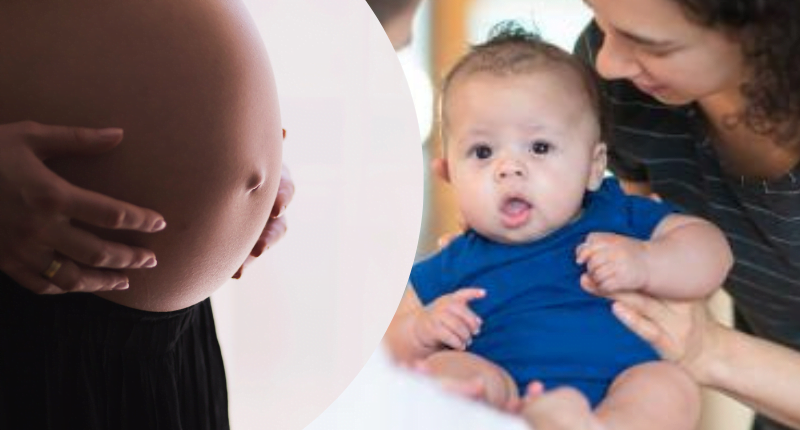How Medical Conditions Can Affect Baby Appearance – Having a baby is a moment of joy and excitement for many families. However, medical conditions during pregnancy can sometimes have an impact on a baby’s appearance. In this article, we will discuss the various medical conditions that can affect a baby’s appearance and what can be done to minimize their effects.
Understanding Medical Conditions During Pregnancy
Medical conditions during pregnancy can range from mild to severe and can have varying effects on the baby’s appearance. Some common medical conditions that can affect a baby’s appearance include gestational diabetes, pre-eclampsia, and chromosomal abnormalities.
Gestational diabetes is a condition in which the mother has high blood sugar levels during pregnancy. This can lead to an increase in the baby’s weight, making it more difficult for the baby to fit through the birth canal, and leading to a condition called macrosomia. Macrosomia can cause facial abnormalities and increase the risk of injury during delivery.
Pre-eclampsia is a condition in which the mother develops high blood pressure and protein in her urine during pregnancy. This can lead to reduced blood flow to the baby and affect the baby’s growth and development, causing facial abnormalities.
Chromosomal abnormalities are genetic conditions that can affect a baby’s appearance. Examples of chromosomal abnormalities include Down syndrome and Turner syndrome. These conditions can cause facial abnormalities and intellectual disabilities.
Diagnosing Medical Conditions During Pregnancy
There are several ways in which medical conditions during pregnancy can be diagnosed, including prenatal testing, ultrasound, and genetic counseling.
Prenatal testing involves taking a sample of the mother’s blood or the baby’s tissue and analyzing it to detect any medical conditions. This can be done as early as 10 weeks into the pregnancy.
Ultrasound is a non-invasive diagnostic tool that uses sound waves to create images of the baby. This can be used to detect any abnormalities in the baby’s growth and development, including facial abnormalities.
Genetic counseling is a type of counseling that provides families with information about their risk of having a child with a genetic condition. This can help families make informed decisions about their pregnancy and the future of their child.
Minimizing the Effects of Medical Conditions on a Baby’s Appearance
There are several ways in which the effects of medical conditions on a baby’s appearance can be minimized. These include proper prenatal care, a healthy diet, and avoiding alcohol and smoking.
Proper prenatal care involves regular check-ups with a healthcare provider, monitoring of the baby’s growth and development, and taking any necessary medications.
A healthy diet during pregnancy can help ensure that the baby receives all the necessary nutrients for proper growth and development. This can help minimize the effects of medical conditions on the baby’s appearance.
Avoiding alcohol and smoking can also help minimize the effects of medical conditions on the baby’s appearance. Alcohol and smoking can cause facial abnormalities and intellectual disabilities, and should be avoided during pregnancy.
In conclusion, medical conditions during pregnancy can have an impact on a baby’s appearance. However, with proper prenatal care, a healthy diet, and avoiding alcohol and smoking, the effects of these conditions can be minimized. It is important for families to be aware of the various medical conditions that can affect a baby’s appearance and to seek proper diagnosis and treatment if necessary.
Also read| Impact of Maternal Health on Baby Appearance
FAQs
Can medical conditions during pregnancy be prevented?
Unfortunately, most medical conditions during pregnancy cannot be prevented. However, proper prenatal care and a healthy lifestyle can help minimize the risk of developing certain conditions.
What is the earliest time that medical conditions during pregnancy can be detected?
Medical conditions during pregnancy can be detected as early as 10 weeks into the pregnancy through prenatal testing, ultrasound, and genetic counseling.
Is it possible to minimize the effects of medical conditions on a baby’s appearance after birth?
The effects of medical conditions on a baby’s appearance are usually permanent and cannot be reversed after birth. However, proper medical care and treatment can help minimize the effects of certain conditions.
Can alcohol and smoking cause facial abnormalities in a baby?
Yes, alcohol and smoking during pregnancy can cause facial abnormalities and intellectual disabilities in a baby.
What is genetic counseling and how can it help families during pregnancy?
Genetic counseling is a type of counseling that provides families with information about their risk of having a child with a genetic condition. This can help families make informed decisions about their pregnancy and the future of their child.
How Medical Conditions Can Affect Baby Appearance Sources | 1, 2, and 3









